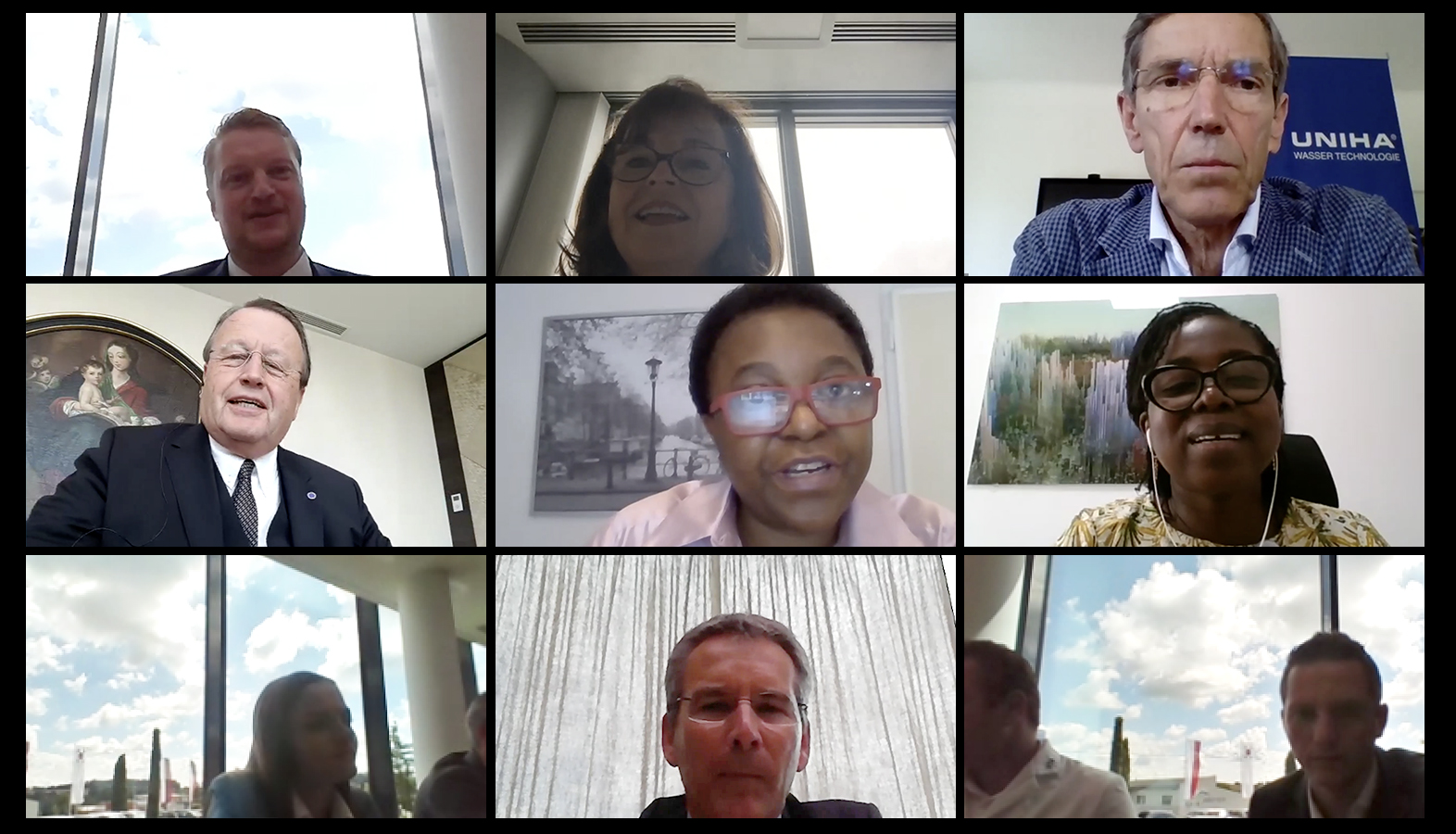SDG6 & Africa:
Clean Water, Sanitation, Recycling & Agriculture

On Friday 3rd of July, SME Connect in association with VTA Austria GmbH, organised a compelling online-event titled “SDG6 & Africa: Clean Water, Sanitation, Recycling & Agriculture” to highlight the current situation in African countries and the urgent need for a more circular approach to ensure clean and safe water for everyone. With a strong focus on the EU-Africa Partnership, the debate emphasized the need for collaborations with the European private sector and shared ideas of (non-) technical solutions for local challenges to better prepare African countries for climate related issues as water is the most precious resource for survival, societal well-being and economic growth.
Dr. Paul Rübig, President of SME Connect and Member of the European Parliament from 1996-2019, opened the expert debate pointing out the importance of joint research and innovation on a global level.
Marlene Mortler MEP, EPP Rapporteur for the AGRI Committee Opinion on a New EU-Africa Strategy Committees: Agriculture & Rural Development, Development & Environment, Public Health & Food Safety; Board Member SME Connect, stated the importance of water as basis for a healthy life and that the availability of clean water is vital for economic development. “Without greater efforts we will not be able to achieve the Sustainable Development Goals”. Around 2 billion people do not have access to a clean drinking water, 4.5 billion people do not have a dignified sanitation system and 40% of wastewater is not treated adequately. She also highlighted the need for joint efforts for meeting the water goal agenda for 2030. European development policy and individual Member States play an important role, together with the partnership of multilateral actors from the public and private sector and civil society.
The keynote speech was held by Ing. Florence Cobbold, General Manager Sewerage Systems Ghana Limited. She situated the current stage of the poor water situation in Africa and talked about the still not sufficient progress between 2007 and 2017. “More efficient use and management of water is essential to address the growing demand, also in context of severe droughts and other climate related issues.” There is an urgent need for more commitment from the government in the area of the policy, legal and regulatory frameworks to ensure good quality water sanitation, recycling and Agriculture as well as the collaboration with the private sector. Moreover, she explained the progress and the impact her company and projects already have had on Ghana´s waste management.
Cécile Kashetu Kyenge, Italian Minister for Integration (2013–14), MEP (2014-2019; Vice-Chair Delegation ACP-EU, highlighted the role of SMEs for Africa as water is an essential resource for development in every sector. “We need joint innovation and research to fight pandemics and climate related challenges.” As experts, SMEs can provide knowledge, expertise and financial founds to invest in projects for building up a sustainable infrastructure which also creates job opportunities. “SMEs can support growing a fair and equal environment with industries having certain standards.”
Ing. Rudolf Ochsner, CEO UNIHA, mentioned that the EU has a big supporting budget for investments Africa´s infrastructure. “For good quality research and innovation, we need less bureaucracy and a system like soft loan financing to also get possibilities of projects for small cities and villages.” Through his experience supporting African projects, he pointed out the need for “direct negotiations as the client knows about the costs and the material, but the client doesn´t know how to get it financed, this is where we have to help!” Direct negotiations also mean the money is used more efficiently. With a decreased burden of bureaucracy, small and medium sized projects are more economic. However, he also stated the importance of the awareness of Chinese investors, as they often use dumping prices without local people being involved meaning no benefits for the local population.
Hartwig Löger, Minister for Finance 2017-2019; Vice-Chancellor 2019, Austria, Chair of ECOFIN Council, agreed to the need of less bureaucracy. Furthermore, he stated that only 1% out of all 94% of investments on global level in climate activities are invested in water related projects. However, investment in water, water treatment and infrastructure are the most important factor for climate resilience. There are a lot of projects looking for investments, also in the ecological infrastructure to make it more climate resistant. “We need to create platforms where we can include private investors, together with a sustainable blended financing framework.” Blended financing with private investors needs tools and methods to ensure investors guarantee.